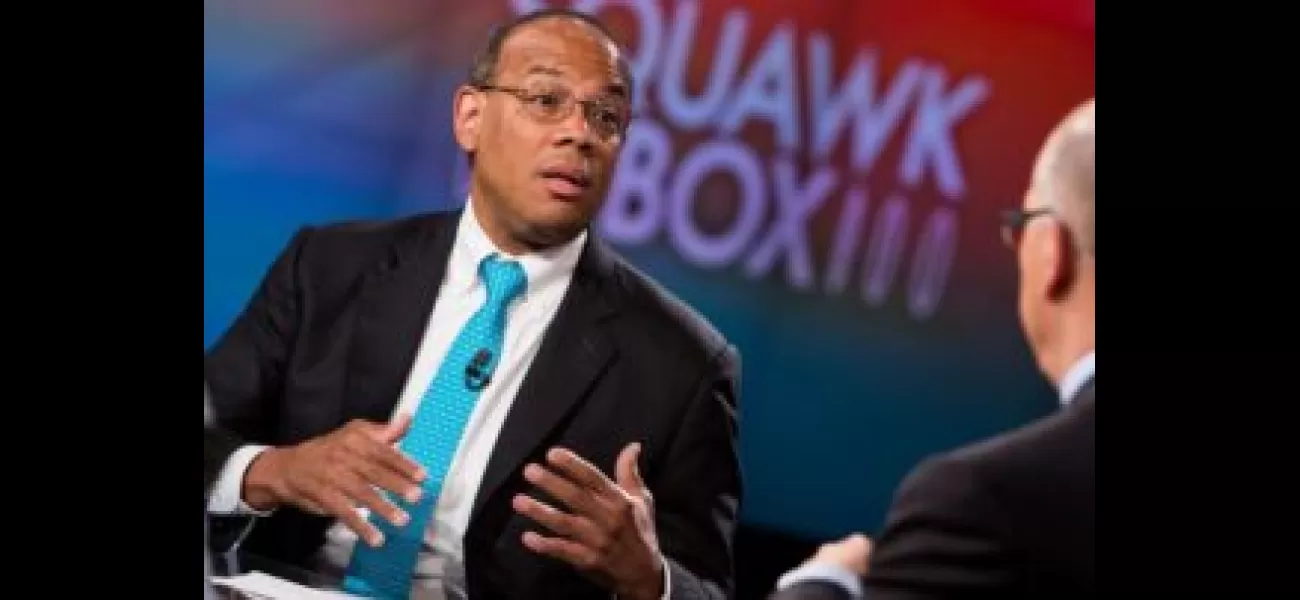John Rogers: Racial injustice still exists in modern society, illustrated by the events in Tulsa.
John Rogers: Jim Crow relevant to today's lack of commitment to Black businesses, seen in his family's millions lost.
July 17th 2023.

Ariel Investments Founder and Co-CEO John W. Rogers is a proud fighter for diversity on corporate boards and better financial opportunities for Black firms. His passion and drive is rooted in his great-great grandfather’s resilience as a Black entrepreneur during the devastating Tulsa Race Riots.
John W. Rogers hails from a long line of resilient lawyers, most notably his late elder and namesake, J.B. Stradford. A leader in Tulsa’s Greenwood neighborhood, he had architected his own empire of real estate income from two dozen rental properties—worth nearly $2 million. His crowning achievement was the JB Stradford Hotel, America’s largest Black-owned, Black-operated, and Black-guest-only hotel from 1918 to 1921.
In an insightful discussion with BLACK ENTERPRISE, Rogers shared the devastating story behind his great-great grandfather’s journey of losing his empire at the hands of a disapproving white community. “It’s a modern-day Jim Crow that Black and Brown people are mostly encouraged to be engaged in the least wealth-building parts of our economy,” Rogers explained. “The doors have been shut often in the most lucrative parts of our economy. The areas where the best opportunities are, that’s where we’re the least likely to be found in leadership roles. That’s where I see the discrimination.”
J.B. Stradford was the son of a former Versailles, Kentucky, slave named Caesar by his enslaver. After arriving in Tulsa via railroad in 1898 with his wife, Augusta, Stradford would witness the meteoric successes and losses of being a Black man in America. He publicly rallied against Oklahoma’s Jim Crow Laws and litigated against the railroad in Tulsa for not providing proper Black accommodations.
“As an African American entrepreneur, traditional diversity initiatives when it comes to Black businesses have always focused around construction, catering, and janitorial services,” Rogers said. “But the wealth and economic opportunity is so much broader than that in this country. So much of the wealth in this country comes from technology, media, investment banking, private equity, and hedge funds.”
The J.B. Stradford legacy was enriched by education. His mother, Jewel Stradford, was the first African American woman to graduate from Chicago Law School. Her dad, C.F. Stradford, was a pioneering civil rights attorney and co-founder of the National Bar Association and the Cook County Bar Association. He helped argue the Hansbury vs. Lee case that challenged the racially restrictive covenant that didn’t allow Blacks to live in certain neighborhoods in Chicago.
In 1921, an inflammatory incident report regarding a Black man and a white woman ignited the long-smoldering fire that brought down the legendary Black Wall Street in Tulsa. Stradford was profiled, detained, accused, and charged for “inciting a riot” and he was facing life in prison or death. With the help of his son, C.F., a Columbia School of Law graduate who resided in Chicago, Stradford fled to the Windy City and would successfully fight extradition to Tulsa.
“He [j.b.] left Tulsa without any wealth. He lost his whole nest egg. The fact that all of his wealth had been destroyed, starting from scratch in Chicago was exceedingly challenging,” Rogers said. “That’s why Black Enterprise is so important. It does shine a light on the successes we have and the challenges that we continue to face in this country. Even though we’re not getting our businesses burned down and destroyed the way that we did in Tulsa, but the same time, we’ve lost of all our big Black businesses here in Chicago.”
John W. Rogers carries on the Stradford legacy through his commitment to diversity and financial opportunities for Black firms. His great-great grandfather’s journey of resilience and courage is a constant reminder that there is still more work to do today—now more than ever.
John W. Rogers hails from a long line of resilient lawyers, most notably his late elder and namesake, J.B. Stradford. A leader in Tulsa’s Greenwood neighborhood, he had architected his own empire of real estate income from two dozen rental properties—worth nearly $2 million. His crowning achievement was the JB Stradford Hotel, America’s largest Black-owned, Black-operated, and Black-guest-only hotel from 1918 to 1921.
In an insightful discussion with BLACK ENTERPRISE, Rogers shared the devastating story behind his great-great grandfather’s journey of losing his empire at the hands of a disapproving white community. “It’s a modern-day Jim Crow that Black and Brown people are mostly encouraged to be engaged in the least wealth-building parts of our economy,” Rogers explained. “The doors have been shut often in the most lucrative parts of our economy. The areas where the best opportunities are, that’s where we’re the least likely to be found in leadership roles. That’s where I see the discrimination.”
J.B. Stradford was the son of a former Versailles, Kentucky, slave named Caesar by his enslaver. After arriving in Tulsa via railroad in 1898 with his wife, Augusta, Stradford would witness the meteoric successes and losses of being a Black man in America. He publicly rallied against Oklahoma’s Jim Crow Laws and litigated against the railroad in Tulsa for not providing proper Black accommodations.
“As an African American entrepreneur, traditional diversity initiatives when it comes to Black businesses have always focused around construction, catering, and janitorial services,” Rogers said. “But the wealth and economic opportunity is so much broader than that in this country. So much of the wealth in this country comes from technology, media, investment banking, private equity, and hedge funds.”
The J.B. Stradford legacy was enriched by education. His mother, Jewel Stradford, was the first African American woman to graduate from Chicago Law School. Her dad, C.F. Stradford, was a pioneering civil rights attorney and co-founder of the National Bar Association and the Cook County Bar Association. He helped argue the Hansbury vs. Lee case that challenged the racially restrictive covenant that didn’t allow Blacks to live in certain neighborhoods in Chicago.
In 1921, an inflammatory incident report regarding a Black man and a white woman ignited the long-smoldering fire that brought down the legendary Black Wall Street in Tulsa. Stradford was profiled, detained, accused, and charged for “inciting a riot” and he was facing life in prison or death. With the help of his son, C.F., a Columbia School of Law graduate who resided in Chicago, Stradford fled to the Windy City and would successfully fight extradition to Tulsa.
“He [j.b.] left Tulsa without any wealth. He lost his whole nest egg. The fact that all of his wealth had been destroyed, starting from scratch in Chicago was exceedingly challenging,” Rogers said. “That’s why Black Enterprise is so important. It does shine a light on the successes we have and the challenges that we continue to face in this country. Even though we’re not getting our businesses burned down and destroyed the way that we did in Tulsa, but the same time, we’ve lost of all our big Black businesses here in Chicago.”
John W. Rogers carries on the Stradford legacy through his commitment to diversity and financial opportunities for Black firms. His great-great grandfather’s journey of resilience and courage is a constant reminder that there is still more work to do today—now more than ever.
[This article has been trending online recently and has been generated with AI. Your feed is customized.]
[Generative AI is experimental.]
0
0
Submit Comment





